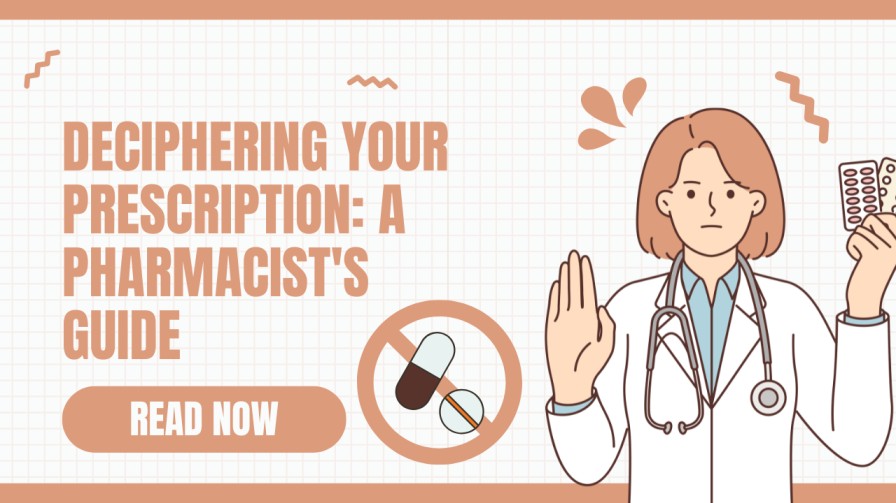Understanding the Basics
A prescription is a written order from a healthcare provider, such as a doctor or nurse practitioner, for a specific medication. It’s your personal roadmap to better health, but it can sometimes seem like a foreign language. Let’s break down the key components to help you understand your prescription better.
Key Components of a Prescription
A typical prescription includes the following information:
- Patient Information: Your name, address, and date of birth.
- Date: The date the prescription was written.
- Drug Name and Strength: The specific medication and its dosage strength.
- Generic vs. Brand Name Drugs: Generic drugs are usually cheaper than brand-name drugs and often have the same active ingredients.
- Dosage: The amount of medication to take.
- Dosage Form: The form of the medication, such as tablets, capsules, or liquid.
- Frequency: How often you should take the medication.
- Quantity: The total amount of medication prescribed.
- Directions: Specific instructions on how to take the medication, including when to take it and with or without food.
- Refills: The number of times the prescription can be refilled.
- Physician’s Signature: The healthcare provider’s signature authorizing the prescription.
Common Prescription Abbreviations
To save space and time, healthcare providers often use abbreviations on prescriptions. Here are some common abbreviations and their meanings:
- ac: Before meals
- pc: After meals
- bid: Twice a day
- tid: Three times a day
- qid: Four times a day
- prn: As needed
- hs: At bedtime
- po: By mouth
- IV: Intravenous (injected into a vein)
- IM: Intramuscular (injected into a muscle)
- SQ or SC: Subcutaneous (injected under the skin)
Tips for Reading Your Prescription
- Ask Your Pharmacist: Don’t hesitate to ask your pharmacist any questions you have about your prescription. They are trained to explain things in a clear and concise way.
- Use a Prescription Drug Information Website: Websites like Drugs.com or RxList can provide detailed information about medications, including dosage, side effects, and drug interactions.
- Read the Medication Guide: The medication guide that comes with your prescription provides important information about the drug, including how to take it, potential side effects, and serious risks.
Common Prescription Errors and How to Avoid Them
- Misunderstanding Dosage Instructions: Always double-check the dosage and frequency instructions with your pharmacist.
- Incorrect Medication Use: Take medications exactly as prescribed. Don’t skip doses or stop taking them early without consulting your doctor.
- Not Taking Medications as Prescribed: Adhere to the prescribed dosage and timing to ensure effectiveness.
- Over-the-Counter Drug Interactions: Be aware of potential interactions between prescription medications and over-the-counter drugs. Consult your pharmacist or doctor before taking any new medications.
- Storing Medications Improperly: Store medications in a cool, dry place, away from direct sunlight and moisture. Follow the specific storage instructions on the medication label.
Conclusion
Understanding your prescription is crucial for effective medication management. By familiarizing yourself with the key components and common abbreviations, you can take an active role in your healthcare. Always consult your pharmacist or healthcare provider if you have any questions or concerns.
FAQs
- What should I do if I forget to take a dose of my medication? If you miss a dose, take it as soon as you remember, unless it’s almost time for your next dose. Don’t double the dose to make up for a missed one.
- Can I crush or chew pills if I have trouble swallowing? You should only crush or chew pills if your doctor or pharmacist specifically instructs you to do so. Some medications should be taken whole to ensure proper absorption.
- How should I dispose of unused medications? Do not flush medications down the toilet. Check with your local pharmacy or waste disposal authority for safe disposal methods.
- Can I take expired medications? No, expired medications may not be as effective and can potentially be harmful. Always dispose of expired medications properly.
- What should I do if I experience side effects from a medication? If you experience side effects, contact your doctor or pharmacist immediately. They can advise you on how to manage the side effects or adjust your medication.

